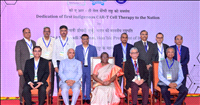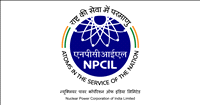Breakthrough allows drug delivery for brain diseases, cancers
23 Apr 2016
Cornell researchers have discovered a way to open one of the major barriers to the brain, called the blood brain barrier (BBB), which prevents the entry of therapies to treat brain disorders, such as Alzheimer's disease.
The finding also has implications for treating all chemotherapy-resistant cancers.
For a century now, a major challenge in the treatment of diseases of the brain has been discovering how to safely deliver drugs across the BBB.
The BBB is composed of a layer of specialized cells, called endothelial cells, which line the brain's blood vessels and safeguard the brain from unwanted substances. These cells also selectively allow entry of molecules needed for brain function, such as amino acids, oxygen, glucose and water.
Cornell researchers report that an FDA-approved drug called Lexiscan, which is used in heart imaging, activates receptors – called adenosine receptors – that are expressed on these BBB cells.
''We can open the BBB for a brief window of time, long enough to deliver therapies to the brain, but not too long so as to harm the brain. We hope in the future, this will be used to treat many types of neurological disorders,'' says Margaret Bynoe, associate professor in the department of microbiology and immunology in Cornell's College of Veterinary Medicine.
Bynoe is senior author of the study appearing April 4 in The Journal of Clinical Investigation. Do-Geun Kim, now a postdoctoral associate in Bynoe's lab, is the paper's first author.
The researchers were able to deliver chemotherapy drugs into the brains of mice, as well as large molecules, like an antibody that binds to Alzheimer's disease plaques, according to the paper.
To test whether this drug delivery system has application to the human BBB, the lab engineered a BBB model using human primary brain endothelial cells. They observed that Lexiscan opened the engineered BBB in a manner similar to its actions in mice.
Bynoe and Kim discovered that a protein called P-glycoprotein is highly expressed on brain endothelial cells and blocks the entry of most drugs delivered to the brain. Lexiscan acts on one of the adenosine receptors expressed on BBB endothelial cells specifically activating them. They showed that Lexiscan down-regulates P-glycoprotein expression and function on the BBB endothelial cells. It acts like a switch that can be turned on and off in a time dependent manner, which provides a measure of safety for the patient.
''We demonstrated that down-modulation of P-glycoprotein function coincides exquisitely with chemotherapeutic drug accumulation'' in the brains of mice and across an engineered BBB using human endothelial cells, Bynoe said. ''The amount of chemotherapeutic drugs that accumulated in the brain was significant.''
In addition to P-glycoprotein's role in inhibiting foreign substances from penetrating the BBB, the protein is also expressed by many different types of cancers and makes these cancers resistant to chemotherapy.
''This finding has significant implications beyond modulation of the BBB,'' Bynoe said. ''It suggests that in the future, we may be able to modulate adenosine receptors to regulate P-glycoprotein in the treatment of cancer cells resistant to chemotherapy.''
Because Lexiscan is an FDA-approved drug, ''the potential for a breakthrough in drug delivery systems for diseases such as Alzheimer's disease, Parkinson's disease, autism, brain tumors and chemotherapy-resistant cancers is not far off,'' Bynoe said.
Another advantage is that these molecules (adenosine receptors and P-glycoprotein are naturally expressed in mammals. ''We don't have to knock out a gene or insert one for a therapy to work,'' Bynoe said.
The study was funded by the National Institutes of Health and the Kwanjung Educational Foundation.













.jpg)






.jpg)









